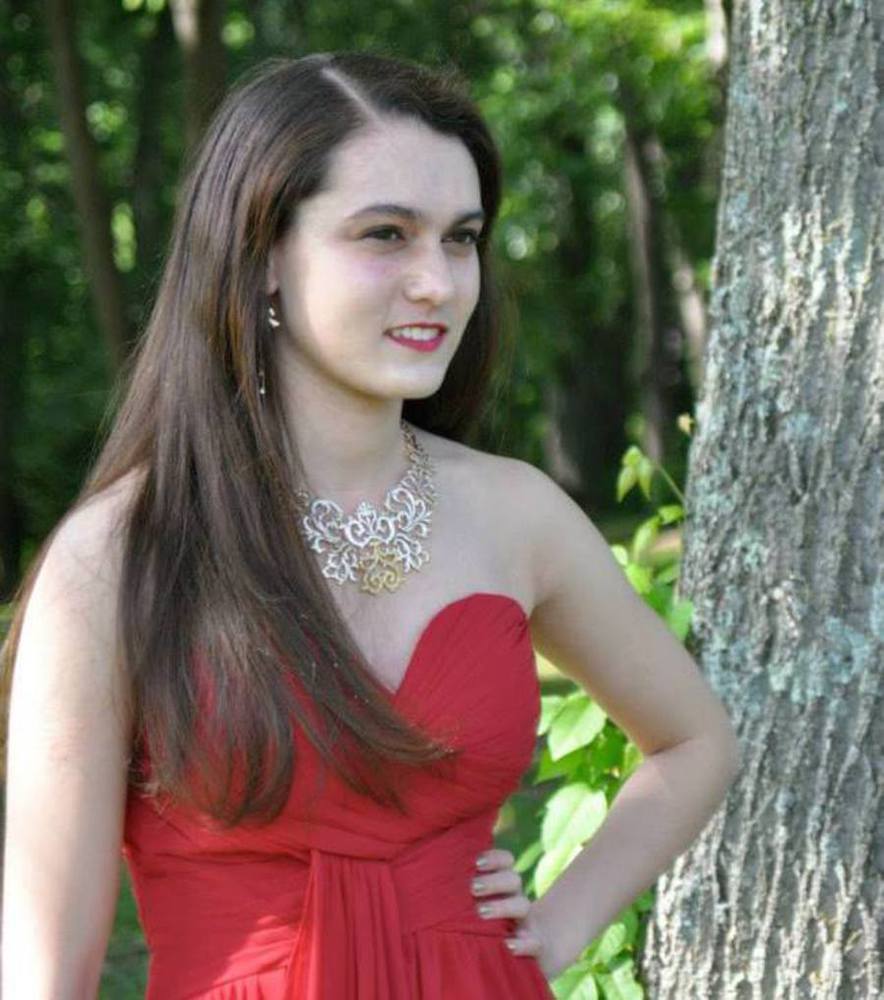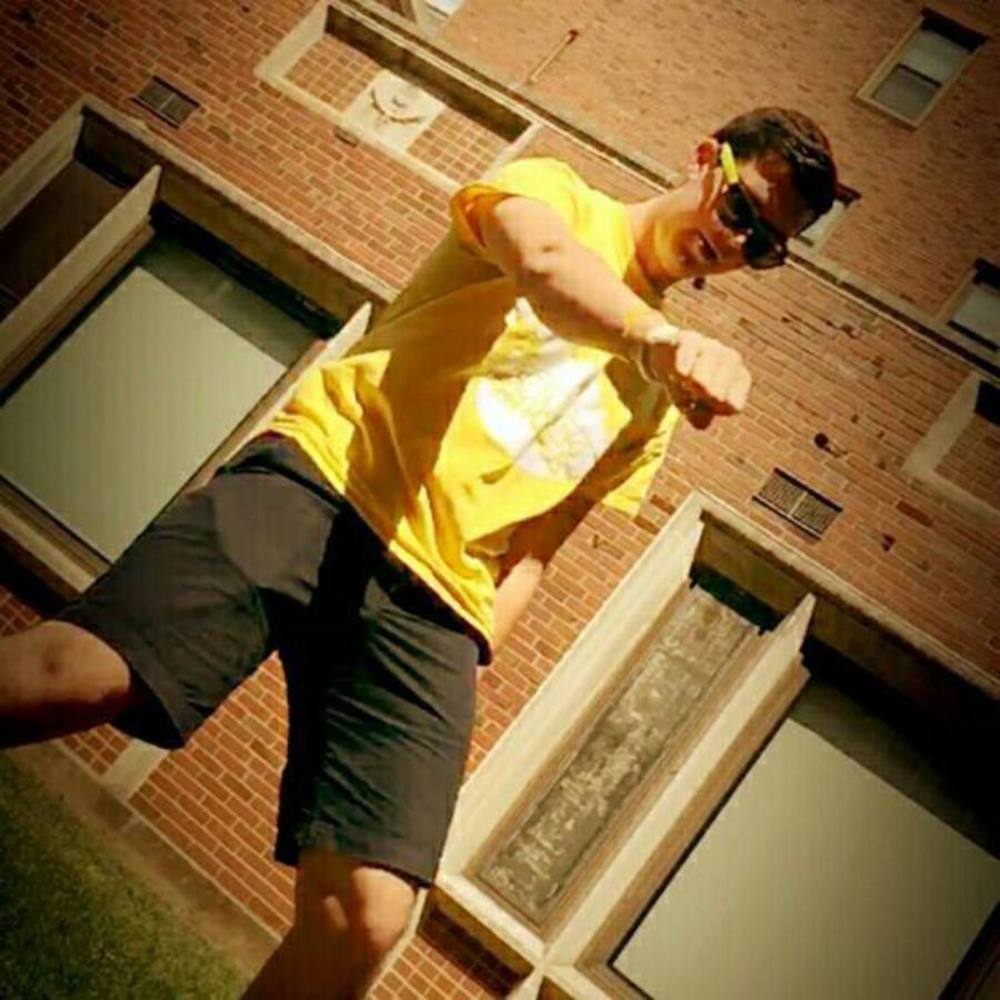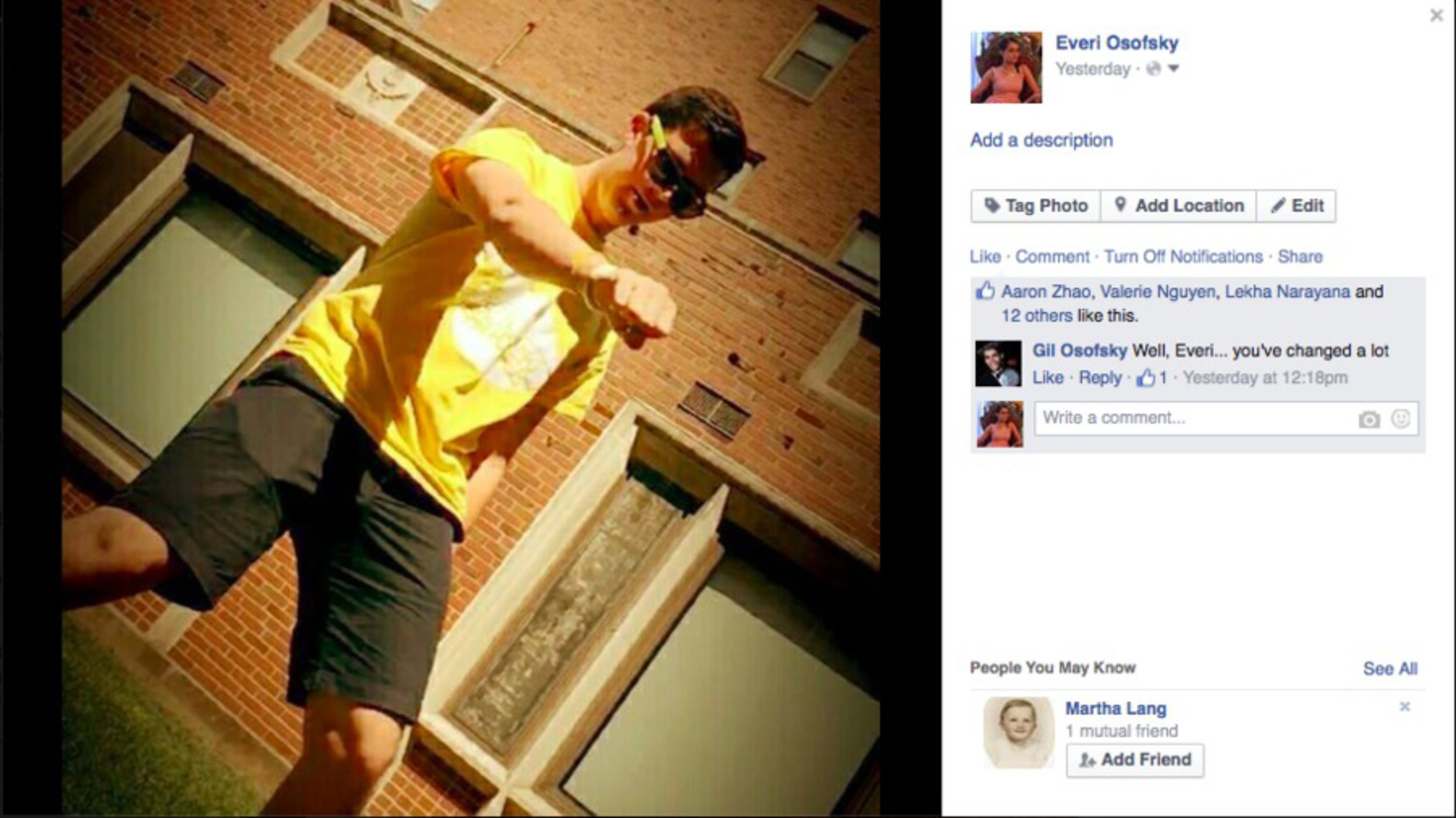Intention:
Profile pictures are generally understood to be an image representing the user. From our analysis it seems that everyone chooses either (1) a real/artistic representation of themselves, (2) a group photo they are in, or (3) a symbol that represents them. It seems to be an online convention that your profile picture represents your identity.
I intend to break this convention by choosing an image of someone else as my profile picture for a day. Specifically, Ricardo Tucker (another student in the course) and I will be switching Facebook profile pictures.
The goal of this project is to see how breaking the most fundamental profile picture convention is received. How will people respond to a profile picture of someone they recognize but is not me? Will my friends still “like” the picture because it is something I posted and the “like” is a form of support? Will my friends’ confusion over my breaking of convention lead to them not “liking” it? Will people who don’t know who the picture is of “like” it? Will my friends react at all to my strange online behavior? Will they ignore it? Will my friends comment on or ask me about the image?


